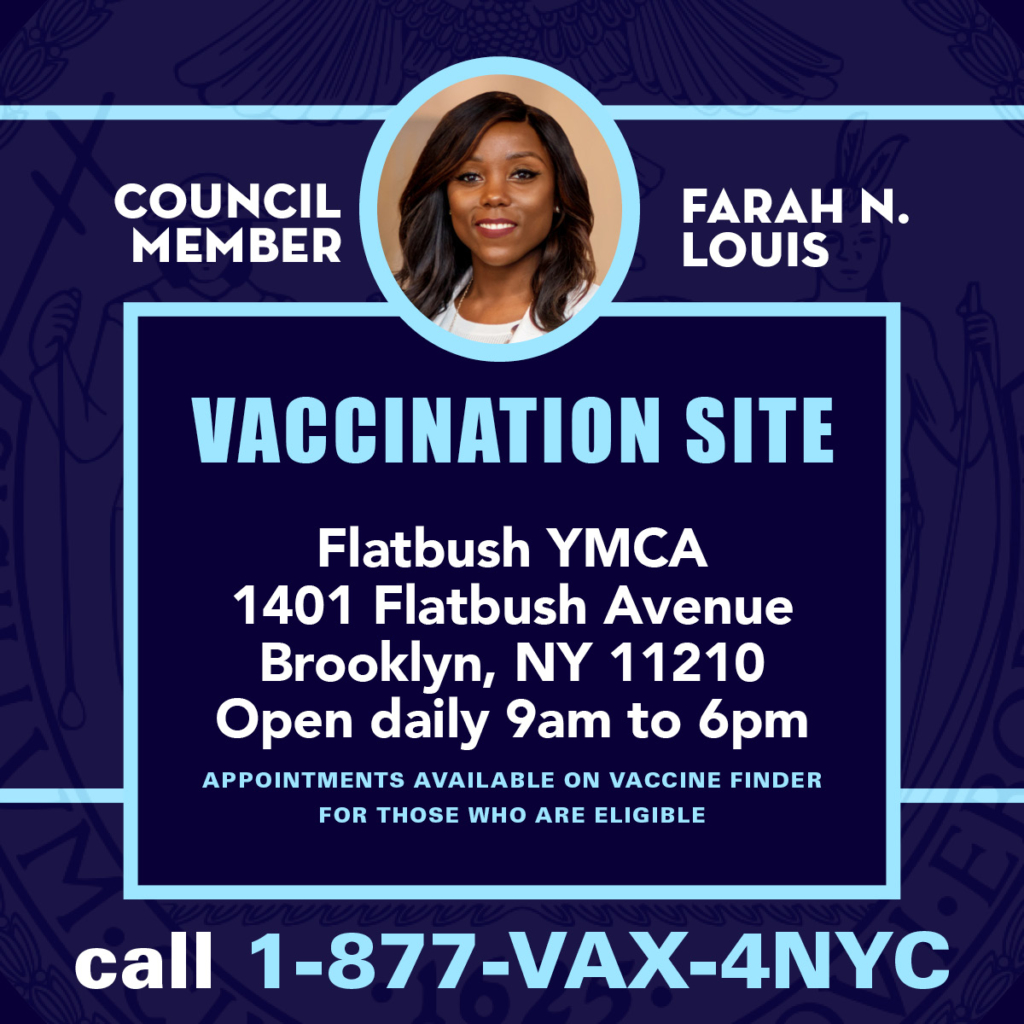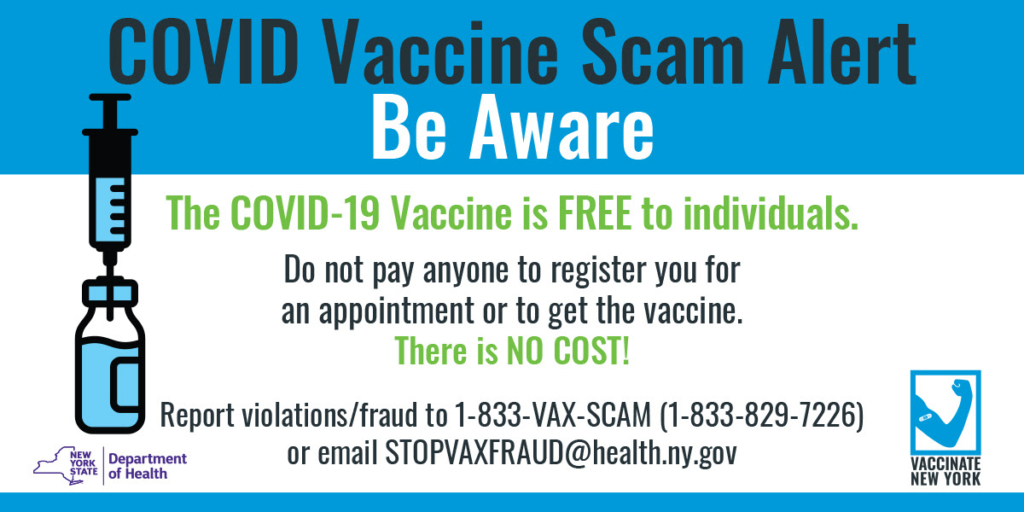To learn more about COVID-19 testing and vaccines, as well as resources for New Yorkers, small businesses, and nonprofits, click on the button below.


Contact Our Office
Our team is available virtually to provide Constituent Services by phone at (718) 629-2900 and via email at District45@council.nyc.gov, Monday through Friday from 10:00AM to 5:00PM.
We will share additional updates on these adjustments as soon as possible via email, website, and social media (i.e. Facebook, Instagram, and Twitter) pages listed as @cmfarahlouis. To subscribe to our listserv, text ‘CMFARAHLOUIS’ to 22828.
